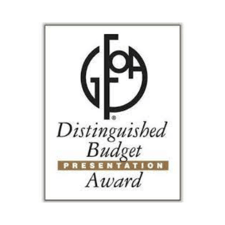May the 4th Be With You: Providing the Tools for Solving the Problem
Local government is a powerful problem solver, and the budget is a crucial solution.
As decision-makers in the budget process, one must celebrate that it’s not just about budgeting; it’s about problem-solving. Every funding request and decision ties back to the origin of public service: How can we impact residents most positively.
Within their organizations, GFOA believes those responsible for the budget should approach their jobs like chefs (innovating, experimenting, and strategizing) rather than like cooks (following a strict protocol to produce a pre-determined outcome). For example, a finance officer who operates like a chef is well-positioned to lead the organization through different challenges, serving as a problem solver to best apply various skills across various current demands.
One realization may be that the numbers will follow by addressing the problem first. Budgeting isn’t just about dollars and cents; it’s identifying the problem to solve first, and then seeking resources to fund the best solution.
That solution may not need money; it may even lie outside of your realm of responsibility, but local governments have an amazing platform through which they can bring awareness to serve and impact their communities.
Traditional budgeting practices seem to start with an unchallenged assumption that resources are mostly already spoken for. When decision-makers begin with how to fund existing services, there is a missed opportunity to better address the organization and community’s problems. However, when decision-makers start with the problem with services as a means to an end, real change can happen to tackle those problems. When local governments take stock of the problems they want to solve, they invite innovation and creative solutions.
“We’re in the business of solving problems… and services are our means that we have now taken for granted as our end.” – Rick Cole (21st-century government, ELGL GovLove podcast)
In a perfect world, every local government could start fresh with problems at the center of their process. However, the wheel is already in motion. So, the challenge is to find alignment between the problem and the services already in play- to shift away from providing all legacy services to providing solutions to problems. Start with what you want to do, and then determine how your existing resources can be used to make it happen.
Join Chris Fabian, Co-founder and CEO of ResourceX, and Katie Ludwig, Senior Manager of Research and Consulting at GFOA, as they dive into the complex discussion of rethinking the budget process to ensure the problems we face as a society today are being addressed.

.png?width=350&height=350&name=zoom%20webinar%20logos%20(2).png)
Chris Fabian
ResourceX, CEO & Co-founder
Chris has been invested in solving the problems associated with resource scarcity in local government for over a decade. Through ResourceX, his team provides the software solution for Priority Based Budgeting (PBB) using data and evidence to transparently and exponentially improve results for citizens and the community. PBB is now practiced and applied by over 250 organizations across North America.
ResourceX believes in the purpose of government and its potential to lead the charge in tackling some of the world’s most significant challenges. Empowering the budget increases local government's ability to tackle massive societal challenges, from climate change and homelessness to equity and sustainability, through program identification and resource reallocation. As a thought leader and budget software innovator, we can support local governments in the vital work they do.
Katie Ludwig
GFOA, Senior Manager
Katie Ludwig currently works at the Government Finance Officers Association (GFOA) as a Senior Manager in the Research and Consulting Center. At GFOA, her work is focused on helping local governments develop policies and procedures and implement systems to improve their efficiency and effectiveness and promote financial sustainability.
Prior to joining GFOA, Katie worked for four and a half years at the Chicago Housing Authority, where she was responsible for the management and operations of the Housing Choice Voucher program. She also worked for the City of Chicago for more than 13 years, serving in a variety of roles in the Office of Budget and Management, the Department of Housing, and the Chicago Public Library. While at the Department of Housing, Katie was responsible for implementing the City’s Neighborhood Stabilization Program, a $170 million federal grant program aimed at putting vacant, foreclosed homes back into productive use.
 Program Data Just Got More Distinguished...
Program Data Just Got More Distinguished...
Learn more about updated GFOA Distinguished Budget Award Eligibility Criteria
GFOA is proud to announce updates to the Distinguished Budget Presentation Award program for budgets beginning on or after 1/1/2021. For more information about program changes or to view updated forms, click here.
Some important changes include:
- Clearly presented departmental program descriptions
- A narrative description of the assigned services, functions, programs and activities of organizational units should be included. Major priorities within each organizational unit should also be addressed.
- Clear linkage between identified programs and goals and objectives
- This criterion requires that departmental/program goals and objectives be described. The relationship of departmental/program goals to the strategic goals of the entity should be apparent.
-1.png)
.png)
